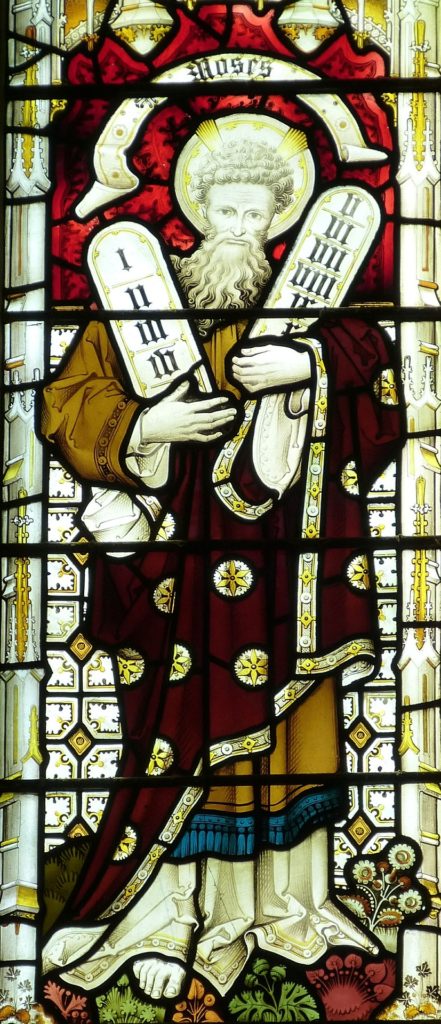
The story of Israelite, the chosen people of God, was born in the covenantal relationship between God and them that had made with Abraham. In this covenantal relationship, the Jewish people assumed a calling to make the One God known to the world. It is said that one of the crucial turning points in the destiny of the people of Israel occurred when Moses relayed the message of God at the foot of Mount Sinai. There, God revealed Himself to the Hebrews and renewed the covenantal relationship that He had made with Abraham (Ex 19-24). During the 40 year journey in the wilderness, God organized the people of Israel into a nation.
The life and faith of Moses lies at the foundation of the faith and life of Israel coming from Abraham. He was born at a time when Israelites were in bondage in Egypt and when the Pharaoh had ordered that all the male children of Israelites to be killed. It may be hard to understand the situation historically since there appears to be a significant historical gap between the death of Joseph in the last chapter of the book of Genesis and the Israelites’ slave labor depicted in the first chapter of the book of Exodus. Archaeology that explored Biblical periods disclosed that the events mentioned in the first chapter of Exodus had its historical settings during the reign of Pharaohs Seti I (ca. 1309 B.C.) and Ramesses II (ca. 1290 B.C.). Therefore, the painful slavery of Israelites most probably cannot be dated prior to 1309 B.C.
At that period, though Israelites were a minority group in Egypt, they were increasing since they had a high birth rate (Ex 1:7ff). Either Seti I or Ramesses II, who did not know Joseph (Ex 1:8), feared about the high birth rate of Israel and they becoming stronger than Egyptians (Ex 1:9) filling the land (Ex 1:7ff). Hence, the Egyptian authorities began to oppress the Hebrews with hard labor. One of the reasons for the Egyptians to force the Israelites into a painful hard labor through slavery (building the government grain cities – Ex 1:11-14) can be to weaken their increasing birth rate. When that did not stop the growth of the Hebrews, there began a selective birth control through murder of male Hebrew Infants at certain point (Ex 1:15-2). Though Moses as a Hebrew appeared to be born under those conditions, his parents (Amram and Jochebed) hid him for a while and then put him in a basket to float in the Nile River.
As it is stated in the book of Exodus, through a series of strange events, Moses became a prince in the palace of Pharaoh since the daughter of pharaoh rescued him. She raised him at the Egyptian royal court and the name Moses (Moshe) meant, “Drawn out of the water.” Then, many years later after his escape from Egyptian authorities, God sent Moses back to Egypt to free His people who were in slavery. The birth of Moses can be marked as the beginning of the plan of God to free His people who were oppressed in Egyptian slavery. The Israelites who were in oppression groaned for the recognition of their human dignity (Ex 2:23-24). Their cry for freedom went up to God and He heard their groaning. God empathized and suffered with them when they had no future under oppression.
— Fr. Niranjan Rodrigo, Ph.D

You must be logged in to post a comment.